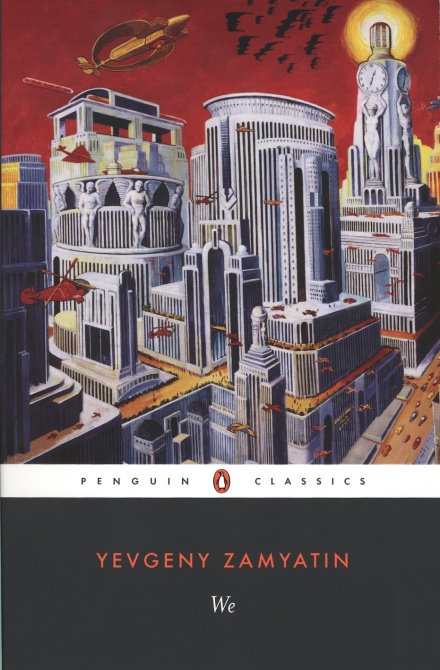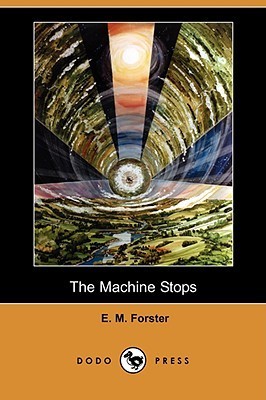
We
Book Description
In a world where individuality is a crime and every heartbeat is meticulously regulated, a mathematician uncovers the haunting thrill of forbidden love and the intoxicating pang of desire. As the oppressive State erodes humanity, his brush with rebellion ignites a battle between conformity and freedom. Will he surrender to the collective or dare to break away from the binary existence dictated by faceless authorities? With chilling glimpses into a dystopian nightmare, 'We' electrifies the mind, forcing a question against the backdrop of grey conformity: What is the cost of true humanity in a world devoid of choice?
Quick Book Summary
“We” by Yevgeny Zamyatin is a foundational dystopian novel depicting an authoritarian future, where the One State controls every aspect of life. Citizens, known by numbers rather than names, live in glass houses under constant surveillance and must sacrifice individuality for collective harmony. The protagonist, D-503, a chief engineer of the spaceship Integral, is a model citizen—until a chance encounter with the enigmatic I-330 stirs feelings of love and rebellion. As D-503 grapples with personal desires versus societal expectations, he discovers the chilling costs of conformity and the perilous excitement of freedom. The story, told through D-503’s journal, confronts the loss of humanity under totalitarian rule and poses urgent questions about autonomy, love, and what it means to be truly alive.
Summary of Key Ideas
Table of Contents
Surveillance, Control, and Loss of Individuality
In the futuristic One State, all aspects of life are tightly regulated and monitored. People are designated by numbers rather than names, signifying the erasure of individuality for the sake of the collective. Daily schedules, transparent living spaces, and strict adherence to state-sanctioned sexual and social behaviors ensure that privacy and self-expression are virtually nonexistent. D-503, a mathematician and engineer, fully accepts these principles at the novel’s outset, priding himself on his logical mind and devotion to the State’s mission to expand control beyond Earth.
The Role of Love and Desire as Forms of Rebellion
The arrival of I-330, an alluring and subversive woman, shakes D-503’s sense of order. Her mysterious ways and open defiance of the State fascinate and unsettle him, drawing him into a circle of rebellious conspirators. Through his relationship with I-330, D-503 experiences love and jealousy for the first time. These emotions disrupt his mathematical certainties and introduce chaos into his previously ordered existence. The affair serves as both an awakening and a catalyst for D-503 to question the foundations of his society.
The Conflict Between Freedom and Security
As D-503’s emotions intensify, so does his mental turmoil. He vacillates between loyalty to the State and the exhilarating, terrifying pull of individual freedom. The novel explores this conflict in depth, contrasting the security and predictability of conformity against the unpredictable risks of autonomy. Through D-503’s journal entries, Zamyatin exposes the psychological costs of repression and the lengths to which the State will go to stifle dissent, including invasive methods such as surgical removal of imagination.
The Machinery of Totalitarianism and Conformity
The machinery of totalitarianism is depicted with chilling precision, from systematic propaganda and surveillance to the erasure of history and dissent. D-503’s gradual transformation unveils how absolute control breeds not only outward compliance but also internal fracture. The regime relies on technology and rationality to govern every human impulse, revealing how enforced harmony often rests on cruelty and dehumanization. The State’s final move—to abolish imagination altogether—demonstrates the ultimate threat to the human spirit under despotism.
The Nature of Human Identity and Consciousness
Ultimately, “We” leaves the fate of D-503 ambiguous, embodying the struggle between mindless obedience and the power of human desire. The novel ends on a note of uncertainty, leaving readers to ponder whether rebellion can succeed or if the machinery of oppression will always prevail. By examining love, art, imagination, and the longing for freedom, Zamyatin’s classic compels reflection on what it means to retain our humanity in the face of relentless conformity and surveillance.
Download This Summary
Get a free PDF of this summary instantly — no email required.





